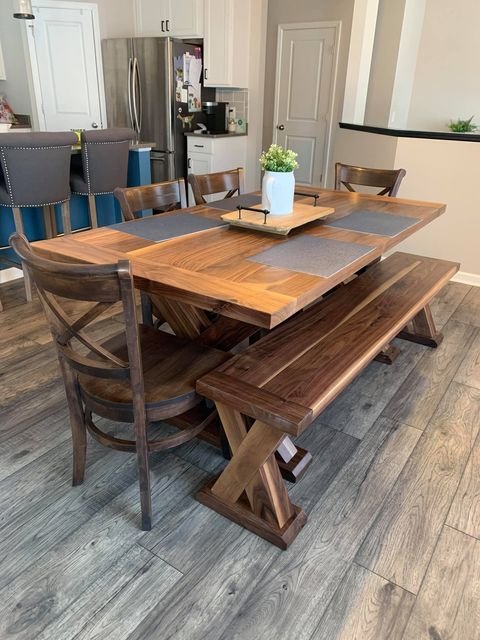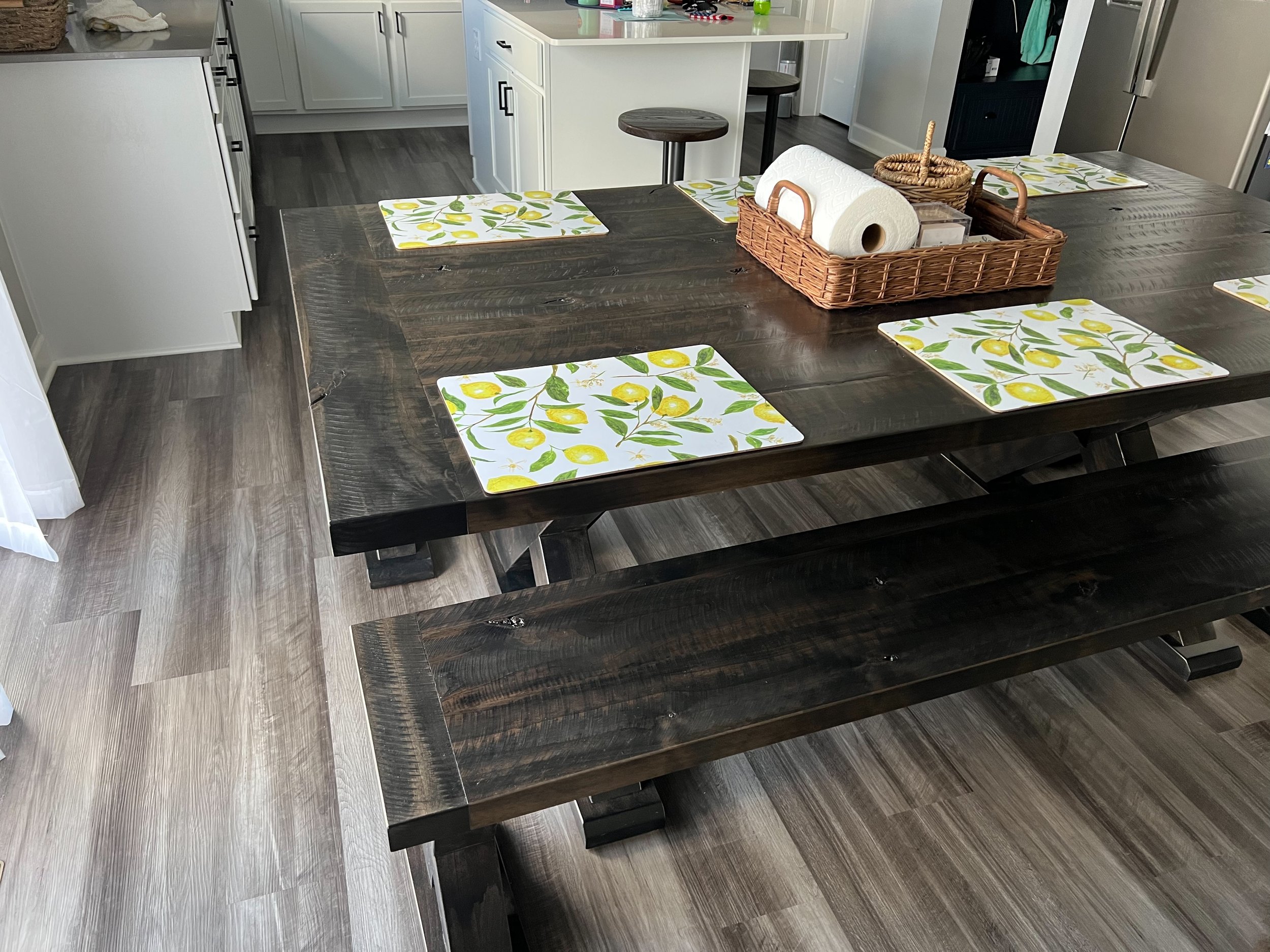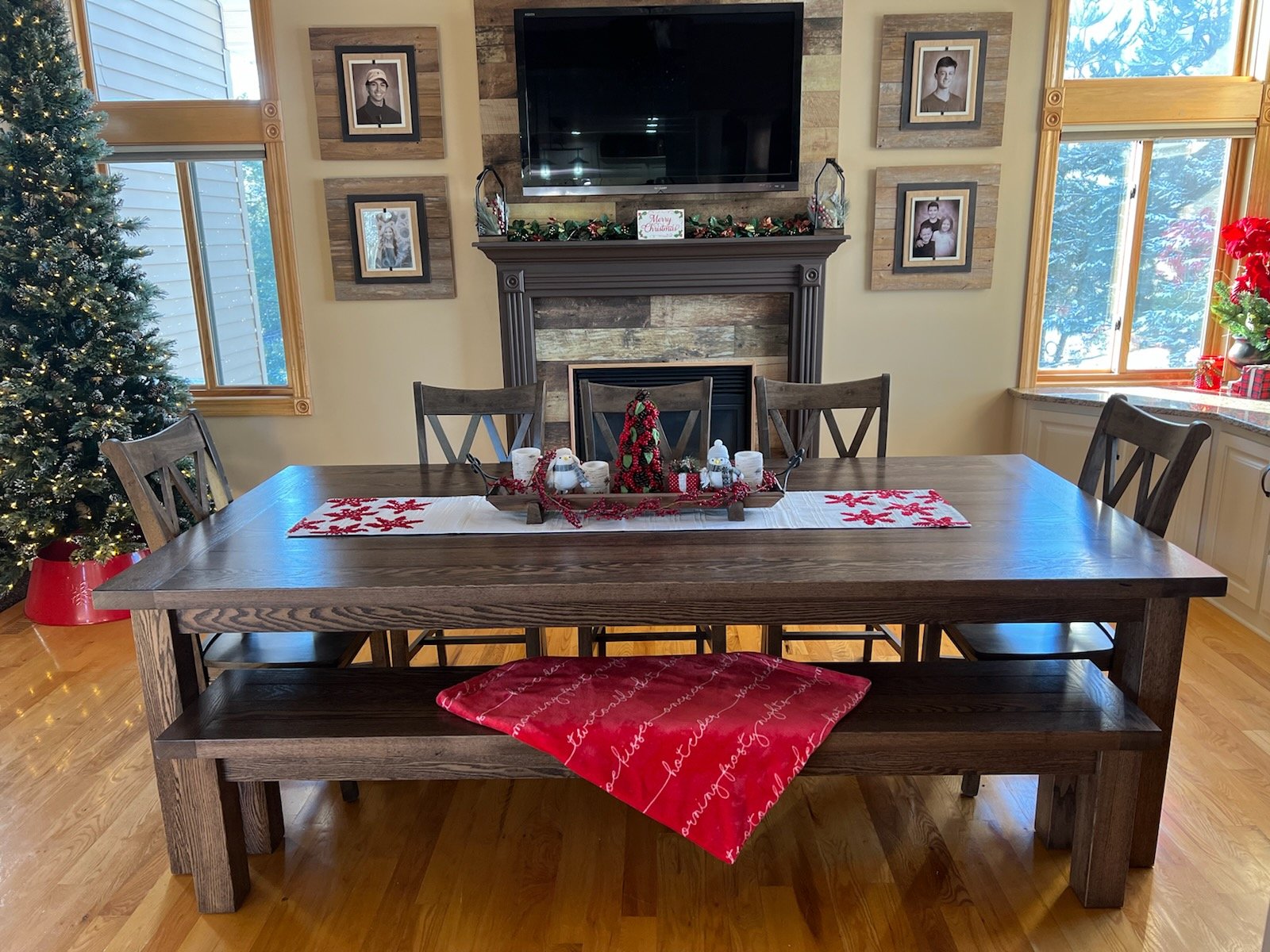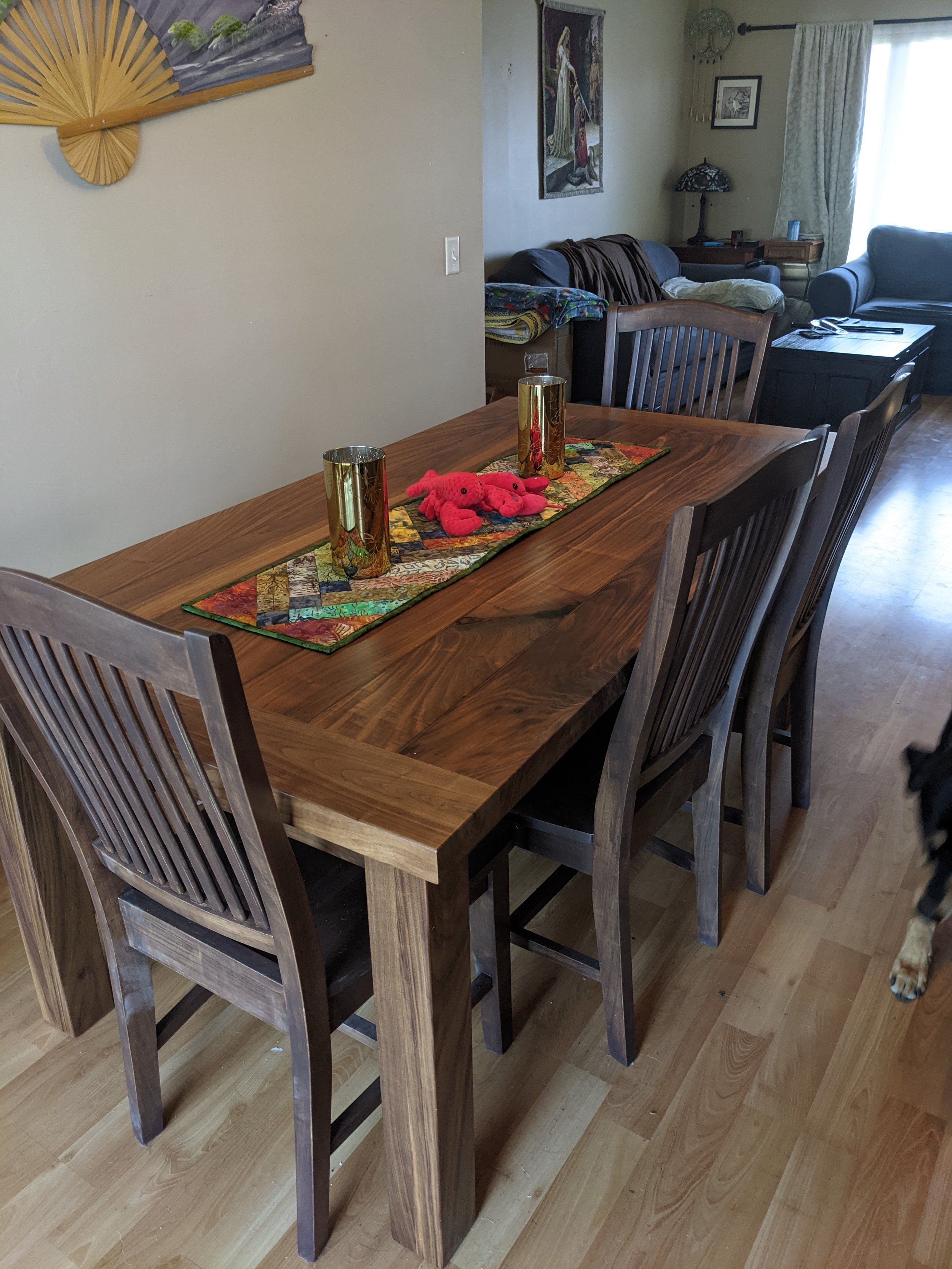Choosing the Right Wood for Your Farmhouse Table: A Comprehensive Guide
Selecting the right type of wood is crucial for both the aesthetic and functional qualities of a farmhouse table. This guide aims to educate you on the various wood options available and help you make an informed decision based on your needs and preferences.
Overview of Wood Types
White Pine
White pine is a popular choice for farmhouse tables due to its light color and affordability. It has a straight grain with a smooth texture, which makes it easy to work with. However, it is a softer wood, making it prone to dents and scratches. This can add to its rustic charm but may not be ideal for households with heavy use.
Knotty Alder
Knotty alder is known for its rustic appeal, characterized by its prominent knots and rich color variations. It has a relatively soft texture, which means it can be easily distressed to enhance its rustic look. Knotty alder is moderately durable and can be a great choice if you're looking for a wood that brings character and warmth to your table.
Red Oak
Red oak is a hardwood with a strong and durable nature, making it an excellent option for busy households. It has a prominent grain pattern that can add a distinctive look to your farmhouse table. Red oak tends to have a reddish hue, which can darken over time, adding depth and richness to the table's appearance.
White Oak
White oak is similar to red oak in terms of durability but offers a more subtle grain pattern and a lighter, more uniform color. It is highly resistant to moisture, making it suitable for tables that may experience spills or humid environments. White oak's timeless look and robustness make it a favorite for high-quality furniture.
Black Walnut
Black walnut is a premium wood choice known for its deep, rich color and striking grain patterns. It is a hardwood, providing excellent durability and resistance to wear. Black walnut can give your farmhouse table a more formal and sophisticated appearance, making it a great choice for those who want a statement piece.
Hickory
Hickory is one of the hardest and most durable woods available, making it ideal for high-traffic areas. It features a dramatic grain pattern with significant color variation, ranging from light to dark shades. This variation can add a unique and dynamic look to your table. Hickory's toughness ensures it will last for many years, even with heavy use.
Durability and Maintenance
Durability
White Pine: Soft, prone to dents and scratches, best for low-traffic areas.
Knotty Alder: Moderately durable, good for adding rustic charm.
Red Oak: Strong and durable, suitable for high-traffic areas.
White Oak: Highly durable and moisture-resistant, great for dining tables.
Black Walnut: Very durable, ideal for statement pieces.
Hickory: Extremely durable, perfect for heavy use.
Maintenance Tips
White Pine: Regular dusting and occasional waxing; avoid heavy impacts.
Knotty Alder: Clean with a damp cloth; apply wood conditioner to maintain its appearance.
Red Oak: Dust regularly, use coasters, and occasionally refinish to maintain its look.
White Oak: Clean with a damp cloth; periodic oiling can help preserve its finish.
Black Walnut: Dust regularly, use coasters, and apply oil to enhance its natural luster.
Hickory: Clean with a damp cloth and mild soap; avoid excessive moisture.
Aesthetic Considerations
White Pine: Offers a light, airy, and rustic vibe, perfect for casual settings.
Knotty Alder: Adds warmth and character with its knots and color variations, great for a cozy, rustic look.
Red Oak: Provides a bold and traditional appearance, suitable for classic farmhouse styles.
White Oak: Delivers a clean, timeless look that fits well with both traditional and modern farmhouse designs.
Black Walnut: Creates a sophisticated and elegant feel, ideal for formal dining rooms.
Hickory: Brings a dynamic and rustic charm with its color variations and strong grain pattern.
Environmental Impact
When choosing wood for your farmhouse table, consider the sustainability of the options. Locally sourced and eco-friendly woods help reduce the environmental footprint. Here are some considerations:
White Pine: Often sustainably harvested; check for certifications.
Knotty Alder: Typically sourced from sustainable forests.
Red Oak and White Oak: Commonly available in sustainably managed forests.
Black Walnut: Can be sustainably sourced, though it's important to verify.
Hickory: Generally sourced from sustainable forests in the United States.
Customer Examples
Example 1: Rustic Charm with Knotty Alder
A customer from Minnesota chose knotty alder for her farmhouse table to complement her rustic kitchen. The knots and color variations added warmth and character, making it the centerpiece of her home.
Example 2: Elegant Dining with Black Walnut
Another opted for black walnut to create a formal dining space. The rich color and sophisticated grain pattern of the black walnut gave his dining room a luxurious feel.
Example 3: Durability and Style with White Oak
This customer selected white oak for its durability and timeless look. Her farmhouse table not only withstands the daily wear and tear of a busy household but also adds a touch of elegance to her dining area.
Conclusion
Choosing the right wood for your farmhouse table is a decision that balances aesthetics, functionality, and sustainability. By understanding the unique characteristics of each wood type, you can select a material that aligns with your style and practical needs, ensuring your farmhouse table will be a cherished piece for years to come.
For more inspiration and personalized advice, feel free to reach out at 763 843 8134 or visit our showroom to see and feel the different wood options in person. We have lots of tables for sale on our online store - check them out here!













